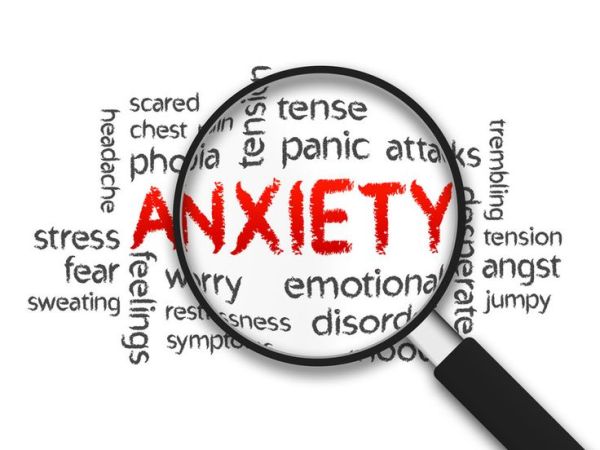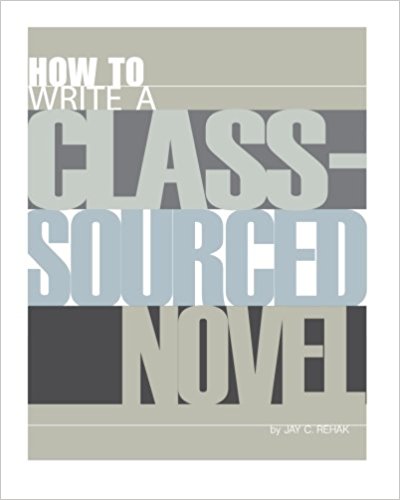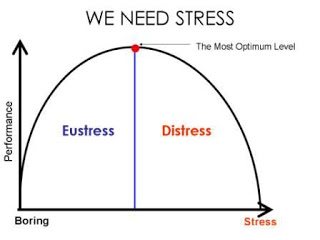Worry. Lose sleep. Be anxious. It means you’re doing something worthwhile.
 Lately, I’ve been feeling anxious, I’ve been losing sleep, I’ve had daily, probably hourly misgivings. And yes, I’m a teacher, so this is all a bit par for the course, but I’ve been teaching for 24 years--- I should be well past the nervous, sleepless, anxiety-ridden stage.
Lately, I’ve been feeling anxious, I’ve been losing sleep, I’ve had daily, probably hourly misgivings. And yes, I’m a teacher, so this is all a bit par for the course, but I’ve been teaching for 24 years--- I should be well past the nervous, sleepless, anxiety-ridden stage.
So, what’s going on? I’m trying something in my classroom that I’ve never tried before. Something uncertain, something risky, something unpredictable. And I’m in too deep to turn back.
I am writing a “class-sourced” novel with my Freshmen English students. It’s a concept I ran across at a conference in last summer. Jay Rehak, writer and English teacher in Chicago Public Schools, has collaboratively written and published several novels with his high school students.
“He did WHAT?!” I asked myself this past August, scrolling through the list of conference offerings.
After reading his session description, I gathered my laptop and my free Google swag (the second best thing about conferences) and headed for Mr. Rehak’s session, hoping to have my questions answered, namely: How in the world did he motivate his students to write a novel? How did he get a classroom full of teens to create an end product good enough to publish? How was all of this managed in the context of a teacher’s life (at school and home)? I headed to Room 309 of Whitney Young High School, seeking answers.
Fifteen minutes later, I found myself back on the conference agenda, scrolling for a different session. I still don’t know what happened to Jay Rehak that day. He didn’t make his first session (full disclosure, he had two more sessions scheduled, but as a presenter myself, I couldn’t attend them). He had, however, provided a link on the conference agenda to his presentation slides which was enough to get me hooked on his idea...a class-sourced novel...and enough to send me, five months later, into my current state of anxiety and sleeplessness: I am writing a “class-sourced” novel with my Freshmen English students.
 So how DOES one write a class-sourced novel? In a nutshell, Jay Rehak’s method (generously shared and clearly explained in his How To Write a Class-Source Novel book) begins with the teacher writing the first chapter of a narrative which teens can connect to. Then, each student writes a chapter which can stand on its own as a short story but also contributes to the growth of novel’s larger narrative. Finally, the teacher writes the concluding chapter. And then, the novel is published.
So how DOES one write a class-sourced novel? In a nutshell, Jay Rehak’s method (generously shared and clearly explained in his How To Write a Class-Source Novel book) begins with the teacher writing the first chapter of a narrative which teens can connect to. Then, each student writes a chapter which can stand on its own as a short story but also contributes to the growth of novel’s larger narrative. Finally, the teacher writes the concluding chapter. And then, the novel is published.
Easy, right? So where’s the anxiety?
Let me count the places:
- The Newness: Imagine trying something new. Now imagine this something is a very challenging something. Now imagine trying this very challenging something in front of a class of 25 high school students.
- The Writing: Writing fiction is itself anxiety-producing, as are many creative acts. Ask any writer about what it’s like to hand your new work over to your first reader. Now, imagine that your first reader is a classroom full of teenagers.
- The Release of Control: Writing fiction in English class requires a teacher to relinquish some control and grant a level of freedom that can be a bit unnerving. And then there’s the assessment: How does one quantify creativity? How does one grade a work of fiction? It’s much easier to teach more concrete writing: the research paper or a persuasive essay.
- The Uncertainty. Having students write is one thing; having them publish is another. Last week it was time to read all of the 1st drafts of the chapters. Doing so gave me some encouragement, but mainly anxiety. I realized that we have much work to do. The next day, I wrote on the board: “Author: a writer who hasn’t quit.” I shared my anxieties with them and I had them take an anonymous survey. All but one student said they’re excited about the novel and they’ll do what it takes with their editor and with me to get to the point of publication. I can work with that.
- The ego. Publish a book with my Freshman English students and there they are, and there I am, for everyone to read and judge.

That anxiety I’m feeling? I'm certain they are feeling it too. Collective stress. But I believe it's eustress, a term from the Greek prefix eu-meaning good, and stress, literally meaning good stress This is not a new concept. Endocrinologist Hans Seyle coined the term in the 1930’s, convincing the scientific community that a manageable amount of stress elicits optimum performance and can lead to personal transformation.
So that’s the story I’m sticking with. This anxiety, this stress, is precisely what will lead us to do our best and most meaningful work.
Rehak himself, in his 2016 TED Talk (yes, he gave a TED Talk, how cool is that?) speaks of a similar end game: “I can’t promise you big dollars or a spot on the New York Times Best Seller List,” he asserts, “but what I will tell you that if you do write a book (with your students)...and you publish it...that the joy that you feel and the community that you create and the pride that you feel will bring joy to you for the rest of your life.”
 That sleeplessness? That anxiety? That stress? They are trivial entrance fees into the land of the worthwhile. They are signs that I’m alive and that I’m doing things that matter. I’m not counting the days until retirement. I’m counting the days until my students see their names in print. I'm counting the days until our book signing event. I'm counting the days until they see the connection between struggling with words and communicating worthy ideas with the larger world.
That sleeplessness? That anxiety? That stress? They are trivial entrance fees into the land of the worthwhile. They are signs that I’m alive and that I’m doing things that matter. I’m not counting the days until retirement. I’m counting the days until my students see their names in print. I'm counting the days until our book signing event. I'm counting the days until they see the connection between struggling with words and communicating worthy ideas with the larger world.
So, fellow teachers, whatever your grade level or content area, I implore you: go to conferences, read professional journals, and seek opportunities to go beyond your comfort zone, to lose sleep and to feel anxious, for it means you’re alive, it means you have purpose, and that your students too will feel alive and have purpose.
That’s worth losing sleep over.